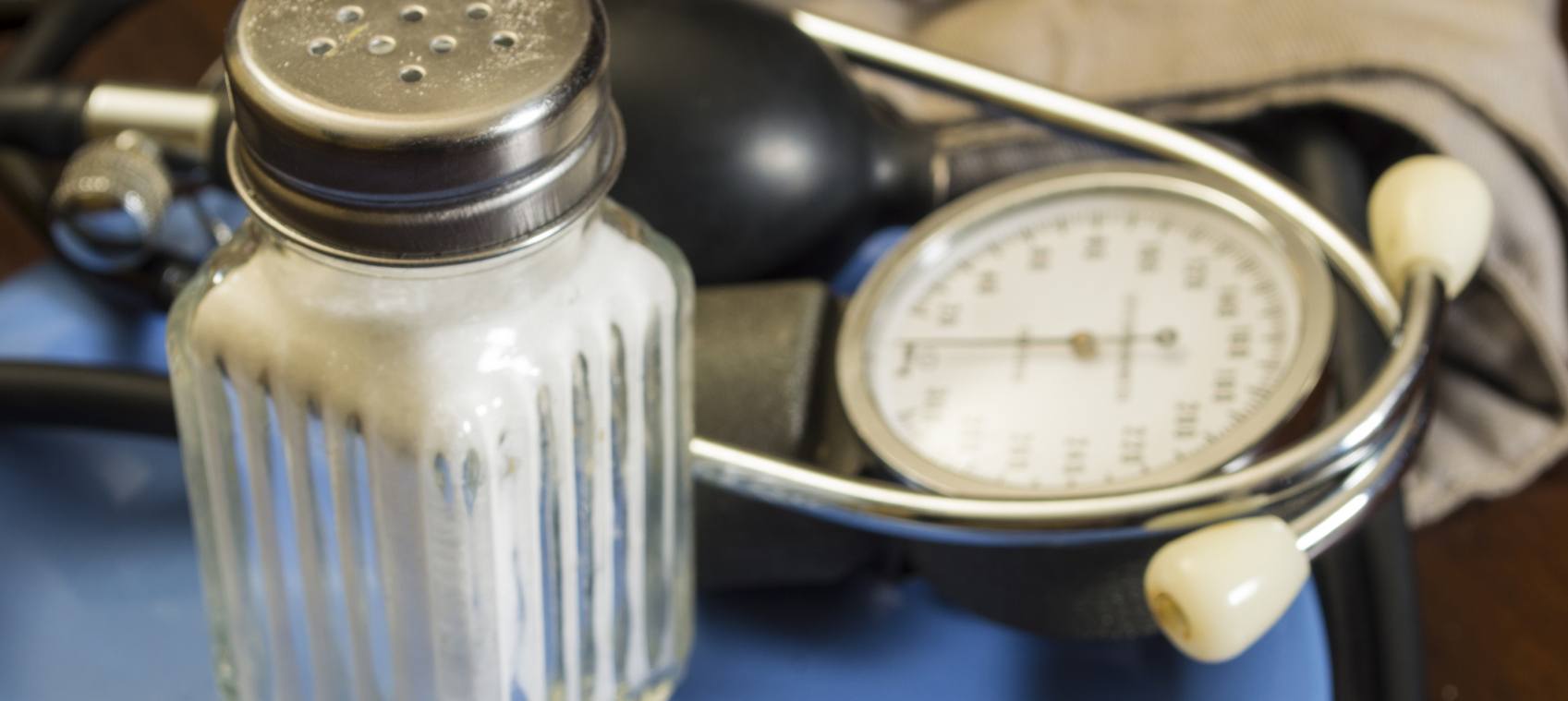
Virtually every doctor alive will tell you if you want to reduce your blood pressure, you need to pay attention to the amount of salt you consume. I’m no exception.
Excess salt causes high blood pressure by promoting water retention, which increases your blood volume and raises your blood pressure.
I’ll never forget a patient of mine who had chronic hypertension and ate his fill of canned ham on Easter Sunday. The next day he was in the emergency room in hypertensive crisis and acute heart failure. His heart just couldn’t handle the amount of salt he had consumed. This was an extraordinary situation, but it underscores the need to be careful with salt intake.
Yet, what may surprise you is that when it comes to salt there’s a “sweet spot.”
Too Little Salt Is as Harmful as Too Much
For years, doctors have said that for healthy blood pressure you should limit your salt to just 2,300 mg a day. But studies have shown that eating too little salt can be just as dangerous as eating too much.
A review of the Framingham Offspring Study found that too little sodium (less than 2,500 mg daily) raised blood pressure higher than it did for those who were eating higher amounts. 1
The problem is that excessive salt restriction can cause dangerously high renin levels, a hormone secreted by the kidneys that regulates water and blood pressure balance. High levels of renin can cause the renal arteries to tighten and constrict, resisting blood flow and elevating blood pressure.
Salt also helps you maintain balanced electrolytes, and supports your muscles, cells, and nerves. That’s why if you’re dehydrated, you need to not only replace water but sodium as well.
While one size doesn’t fit all, for healthy blood pressure you want to aim for about 2.8 grams of sodium a day.
For some people, that will mean adding more salt to their diets. Yet, for most Americans the opposite is true. The average adult eats the equivalent of nearly two teaspoons of salt a day—practically two times the upper limit for good health.
What’s the Best Way to Lighten Up on Salt?
Most of the sodium we eat doesn’t come from the salt shaker but from prepared foods. To cut down on salt and reduce your risk of hypertension:
- Read Labels: Many prepared foods are filled with salt. Some of the worst offenders include crackers, pretzels, canned soups and vegetables, and frozen meals. Look for low (or no) sodium varieties of your favorite foods. Or, better yet, use fresh ingredients.
- Try New Seasonings: Instead of salt, flavor your foods with fresh herbs and spices, such as basil, garlic, oregano, rosemary, chives, parsley, and onion. On rare occasions when you do use a pinch of salt, go with Celtic or Himalayan Sea salt.
- Skip the Olives, Pickles & Sauerkraut: These foods are loaded with sodium. A single large black olive, for example, contains 32 mg of sodium. And a medium-sized dill pickle can pack a whopping 785 mg.
- Be Careful When Eating Out: Many restaurant items, including fast food, are high in salt. For example, a flame-broiled chicken sandwich at a fast-food restaurant can contain 1,200 to 1,400 mg of sodium. Before you order, ask about the ingredients.
Plus, Don’t Ignore Potassium
Your sodium-to-potassium ratio is critical. Whereas sodium increases water retention and causes high blood pressure levels, potassium helps to keep blood vessels relaxed and reduces blood pressure.
In a 2011 study published in the Archives of Internal Medicine, researchers found that a diet higher in sodium and lower in potassium is associated with an increased risk of cardiovascular disease and death from all causes.2
For healthy blood pressure, strive to eat 3,000 to 4,000 mg of potassium a day if you don’t have renal (kidney) problems. Good sources of potassium include baked potatoes, coconut water, bananas, oranges, raisins, squash, apricots, and eggplant.
If you're taking a diuretic to reduce high blood pressure, you want to pay special attention to this information since diuretics are notorious for draining the body of minerals, including potassium.
What’s the bottom line for you? If you have high blood pressure, watch the hidden salt in your diet, increase your potassium intake, and be mindful of what you eat.
More Heart Health Advice From Dr. Sinatra
- How to Put Heart Healthy Meals on the Table When You Have No Time!
- Heart Healthy Diets: 6 Surprising Foods to Avoid
- Lower Your Blood Pressure Naturally by Drinking Water
References:
1 https://www.fasebj.org/doi/abs/10.1096/fasebj.31.1_supplement.446.6
2 https://www.ncbi.nlm.nih.gov/pubmed/21747015


